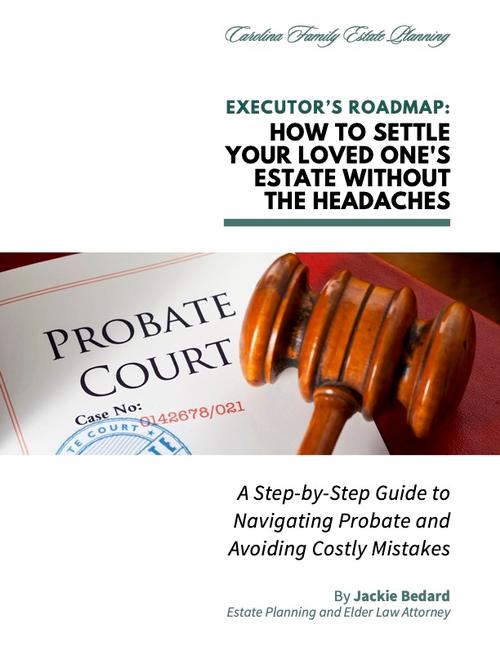Sometimes. In certain cases, assets are somewhat “frozen” until the probate process is finished. The issue is that the deceased’s creditors have first priority before heirs receive distributions. And if the executor or administrator does not properly administer the estate and settle the debts and liabilities correct, he or she may be personally liable for any mismanagement.
North Carolina law does permit certain statutory allowances for a surviving spouse or depending children, but these allowances are relatively small in comparison to today’s cost of living. Currently, a surviving spouse has the right to a one-time allowance of up $20,000. Dependent children have a right to a $2,000 allowance.
For purposes of the allowance, North Carolina defines a dependent child as any child that is under the age of 18 years (including an adopted child), or a child under the age 22 years that is a full-time student, or a child under the age of 21 years that has been declared mentally incompetent, or a child under the age of 21 years who is totally disabled, or any other child under the age of 18 years for whom the deceased or the surviving spouse served in loco parentis (meaning “in place of a parent”).
These allowances are referred to as the “Years Allowance” and during the probate process, they take priority over creditor claims and other heirs or beneficiaries of the estate.
Are assets “frozen” during the probate process?
Free Estate Planning Resources & Reports

Executor's Roadmap
Our Executor’s Roadmap is here to help you manage each step with confidence, avoid common pitfalls, and protect both the estate and yourself.
More InfoReady To Get Started?
The purpose of the Needs Assessment Call is to:
- Briefly discuss your needs and goals
- Discuss best next steps to help you towards your goals
- It typically only takes 15 minutes or less!
North Carolina Estate Planning Attorney Serving the Following Cities and Areas:
- Cary (Main Office)
- Apex
- Clayton
- Durham
- Holly Springs
- Morrisville
- Raleigh
- All of North Carolina

